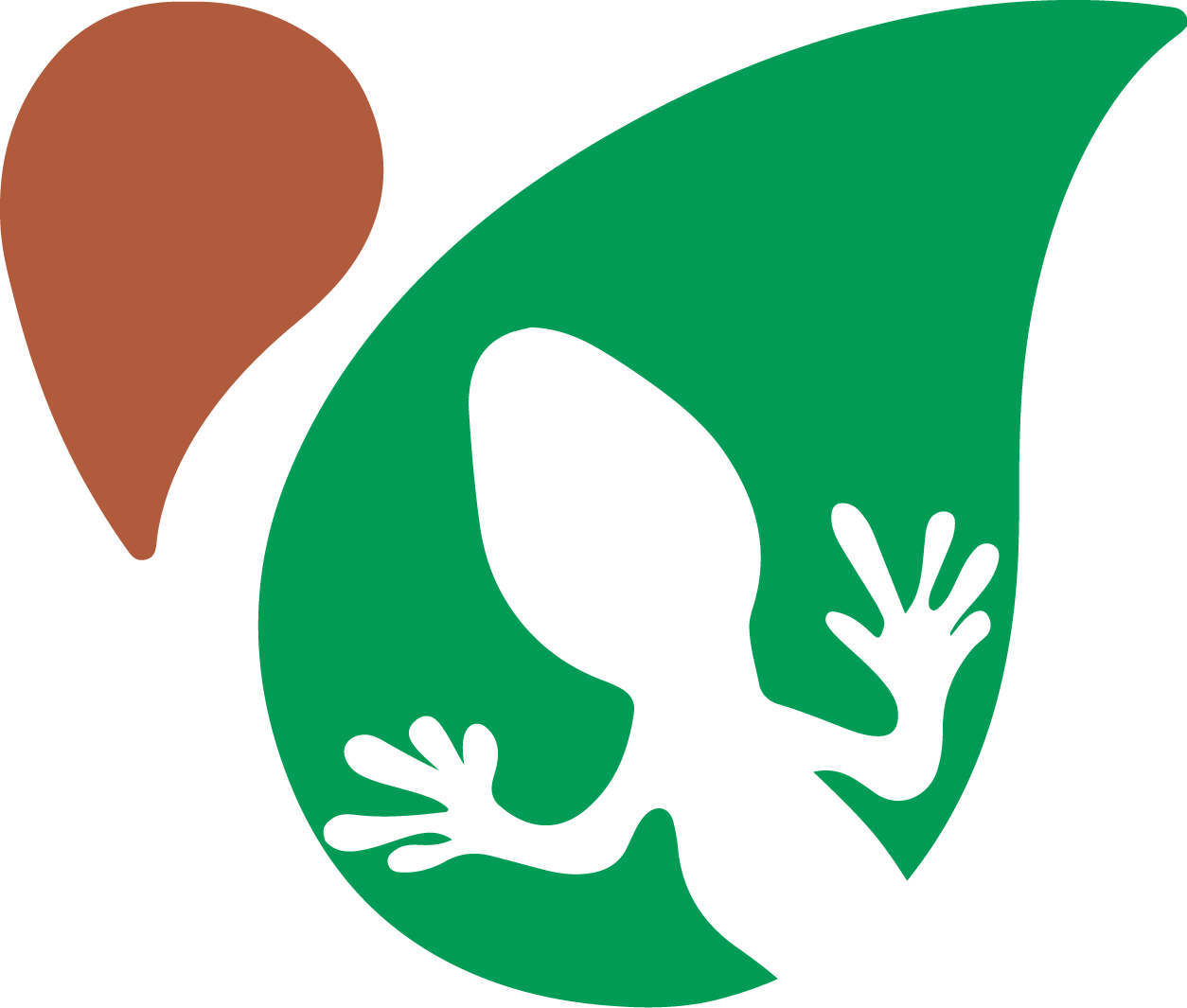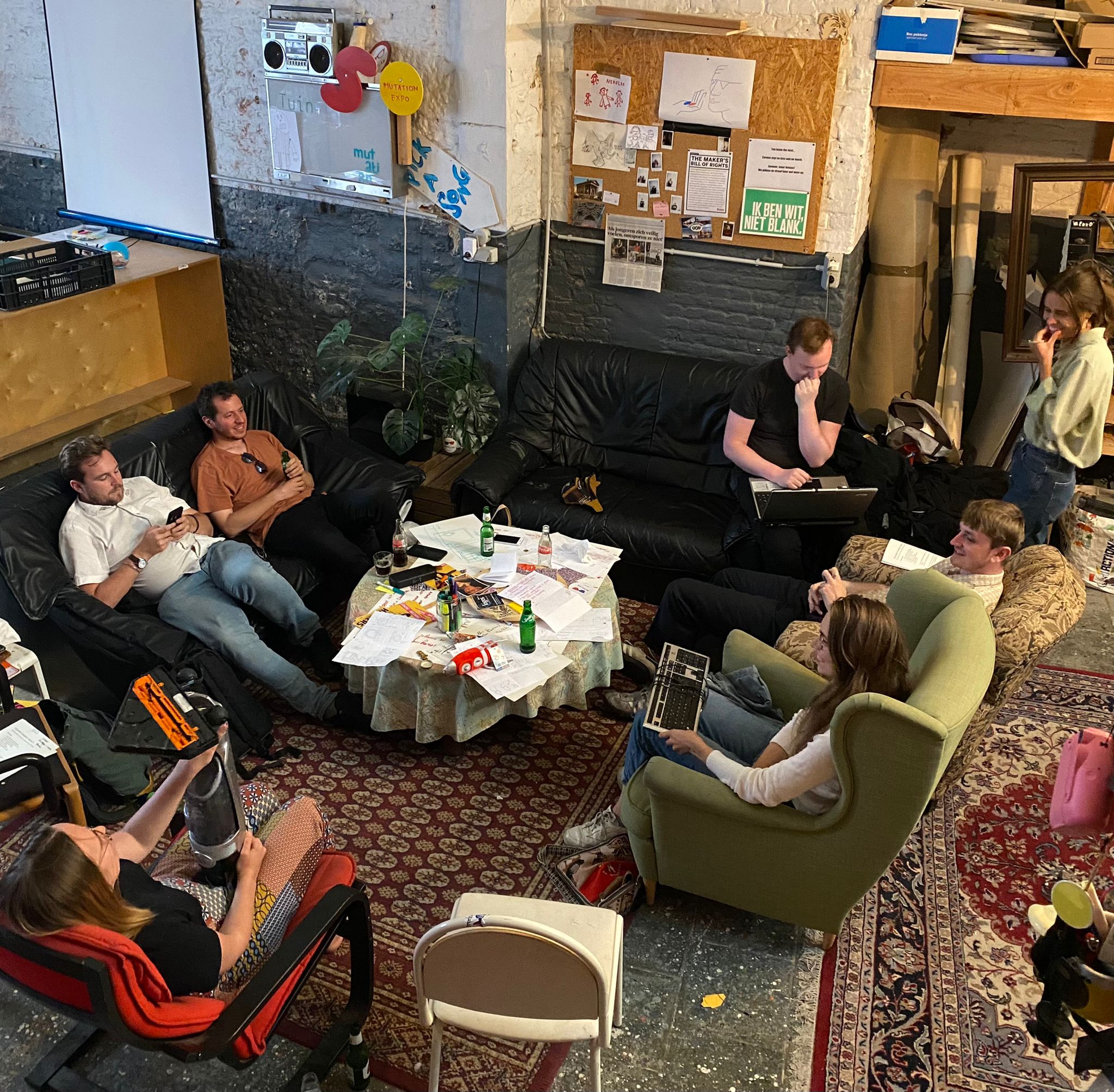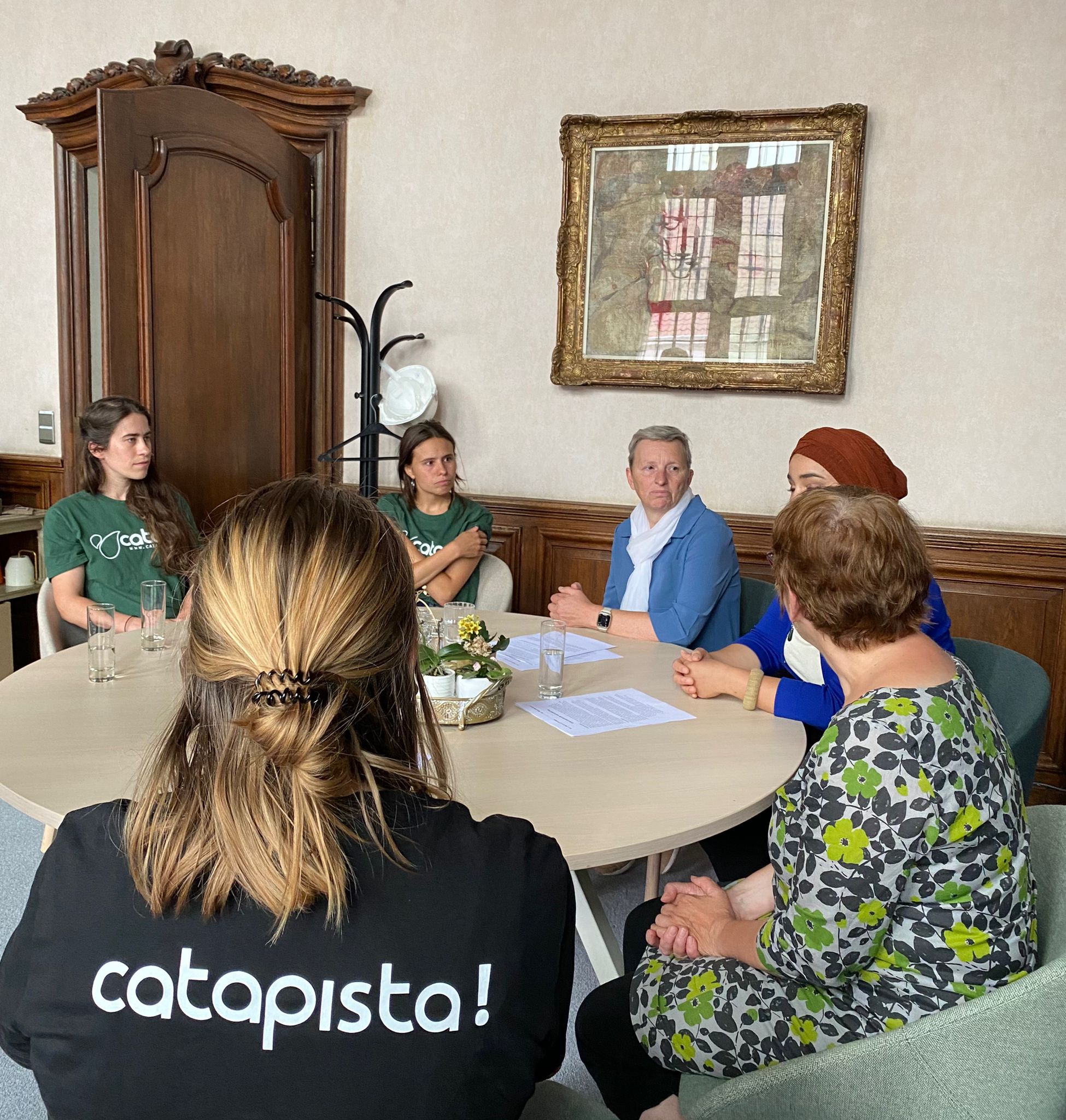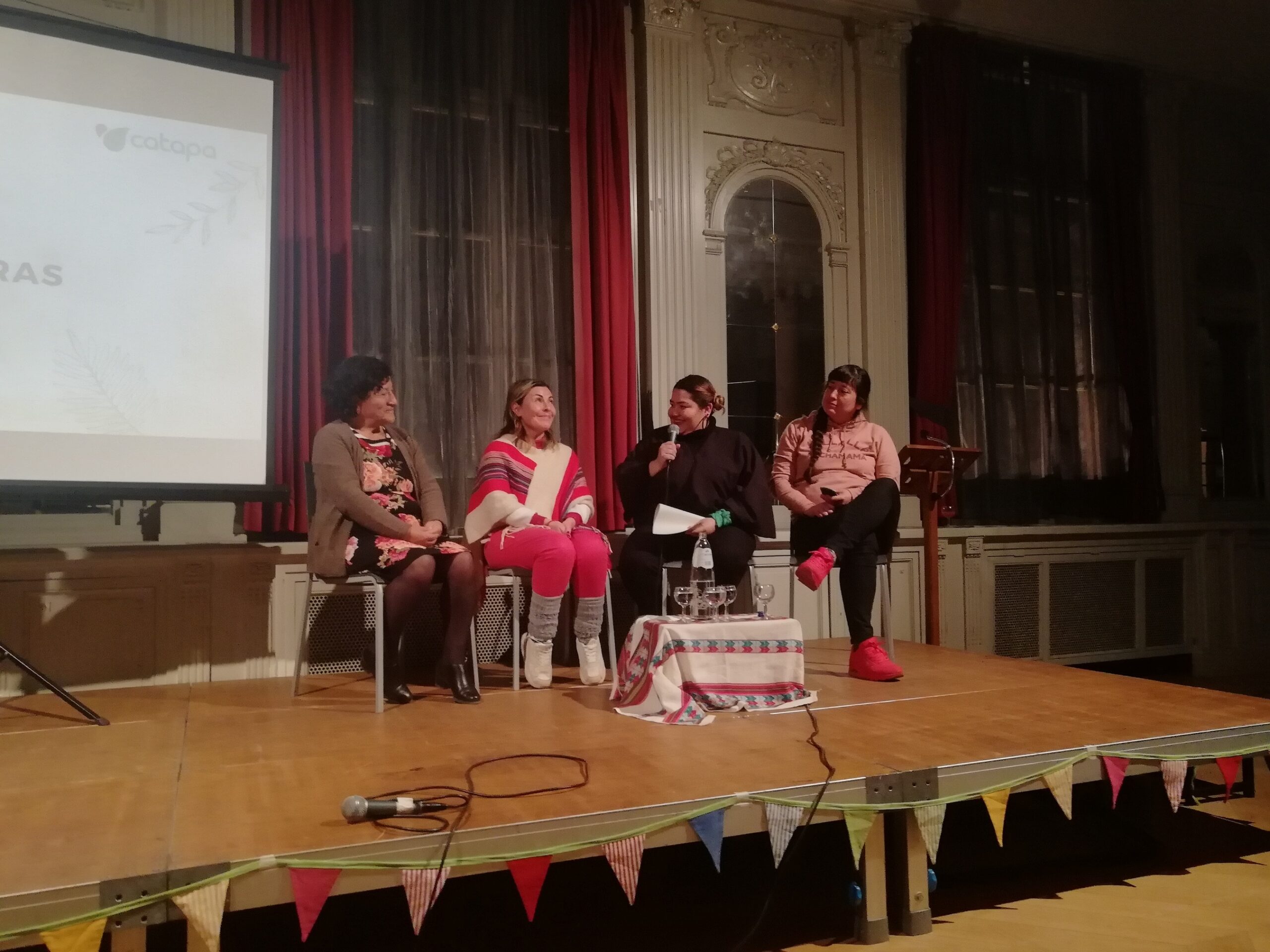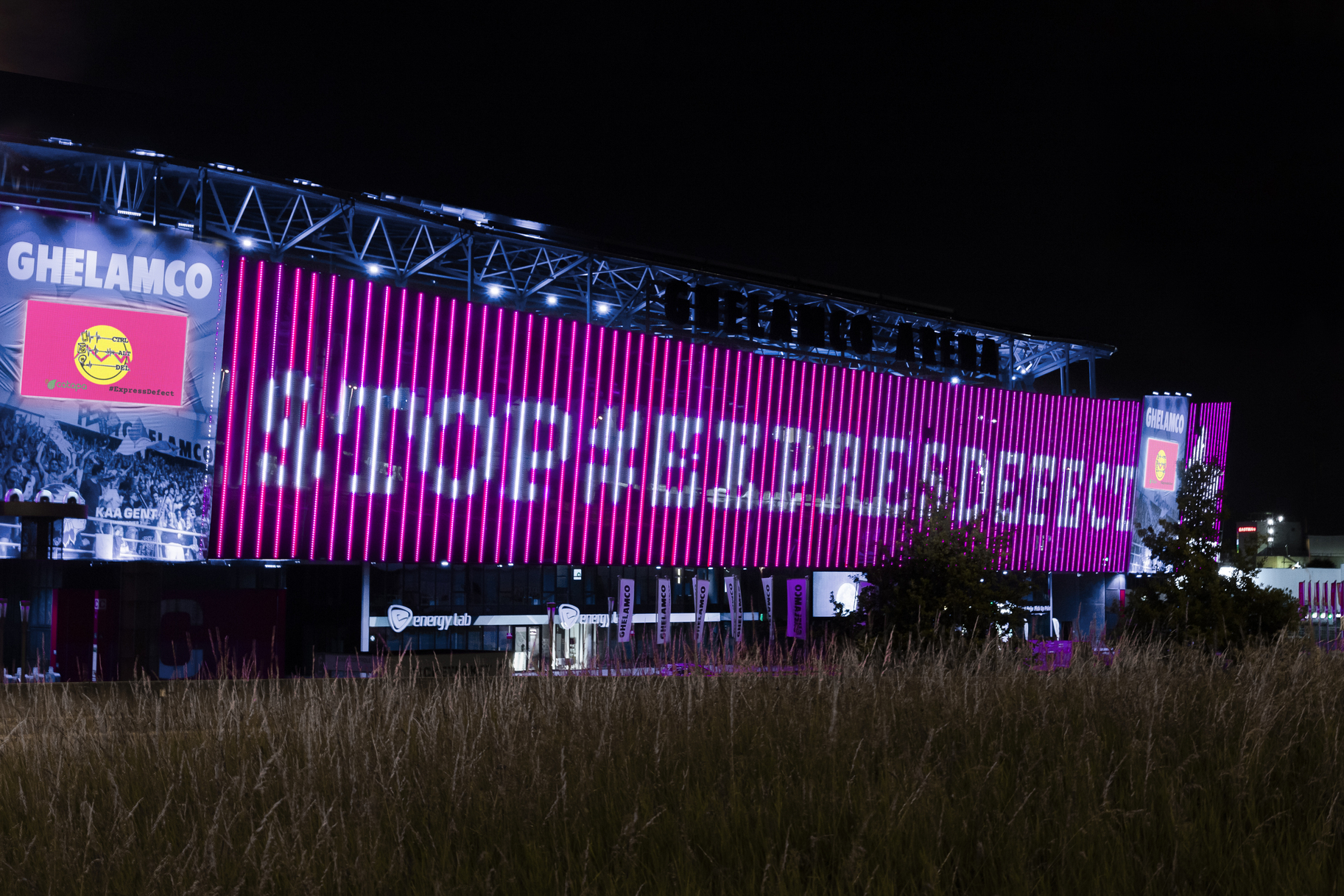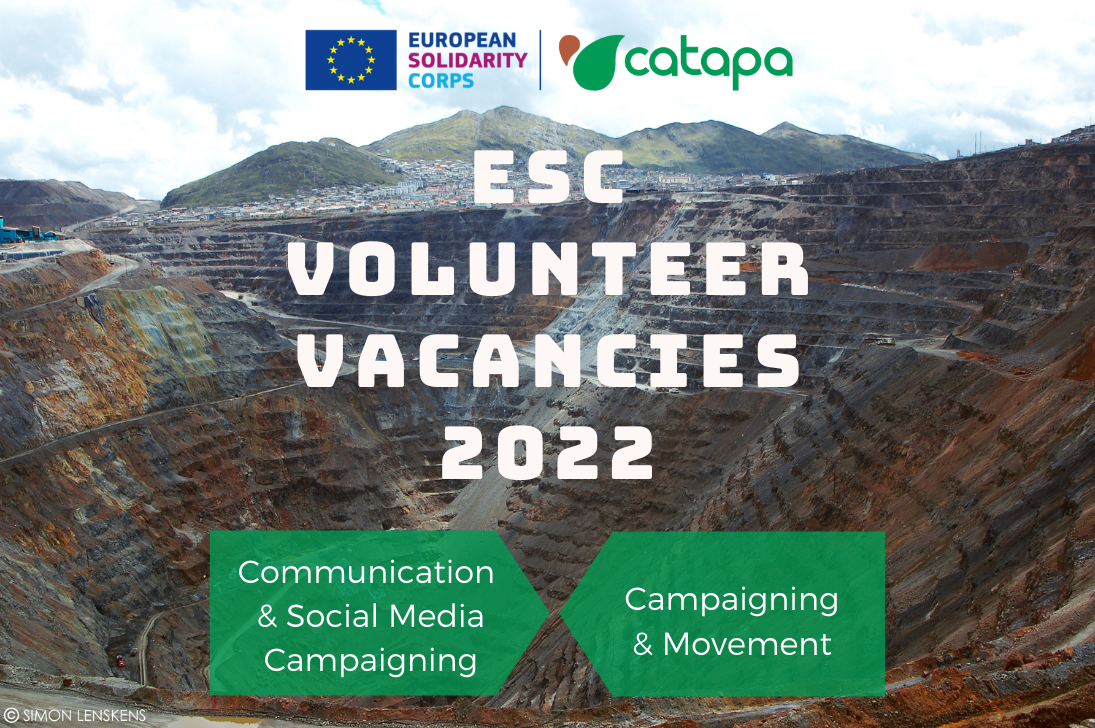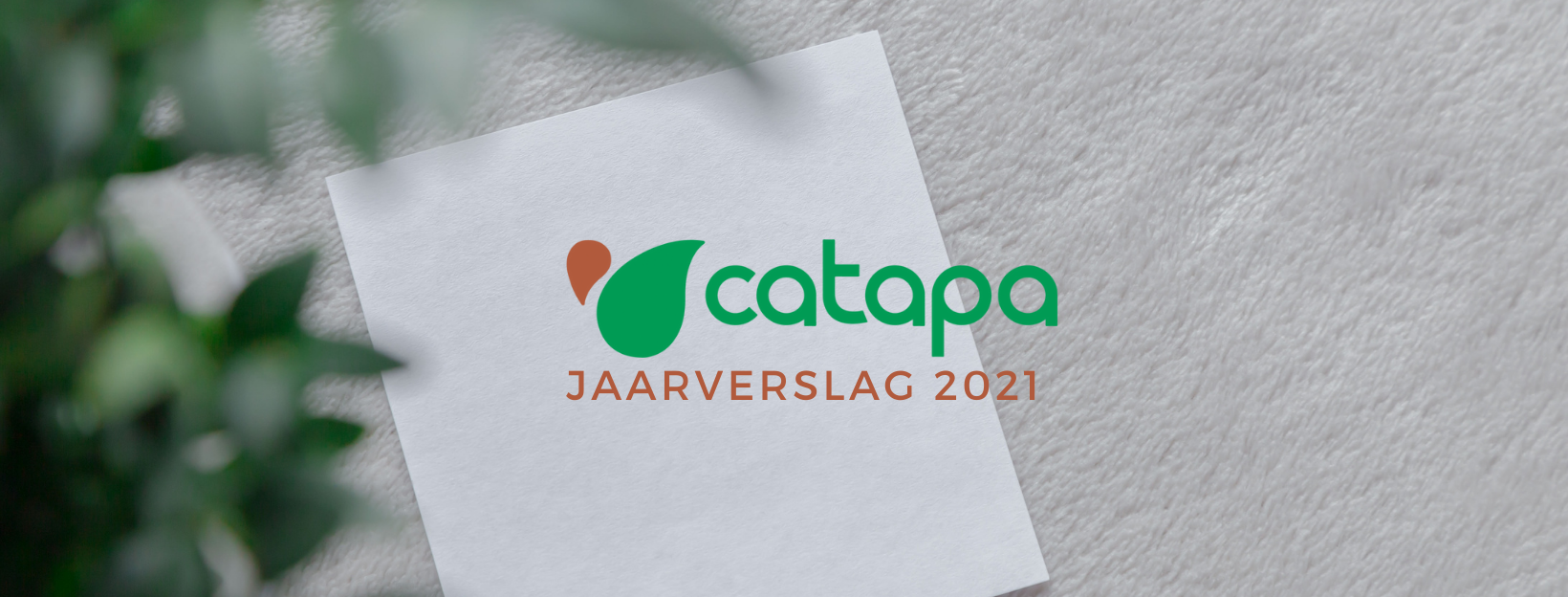Defending their lands and their bodies was never a choice, but a necessity. With hopes and dreams for a different reality they continue their fight against extractivism and patriarchal oppression.
On the 8th of March, international women’s day, we came together in Brussels. Defensoras: Tierras que resisten en manos de mujeres. Or ‘Earths that resist in the hands of women’ was the theme of the night. A panel of four feminist environmental defenders: Mirtha, Dayana, Chihiro and Sandra, took us on a journey about defending the earth, ourselves as women and what it means to care, for the land and for each other. Across two written reflections I want to pass on to you, the readers, the powerful messages and thoughts that the panelists brought up and exchanged that night. First, let us unravel the words Defensoras and Tierra.

Defensoras.
The violation of human rights by multinational companies in their regions is what made these women environmental defenders or Defensoras.
Did we ever ask ourselves if defensoras want to be defensoras?
The extractive multinationals that come to Latin America and invade it as if it is their home take away the privilege of the defensoras to decide who they want to be and the possibility to shape their life and dreams.The only option they have is to fight the presence of the multinationals and the threats to their survival, their surroundings and their communities.
They shared their dreams of what their lives could look like without extractivism. Living in a cabin in nature, being a filmmaker, working with peasant women, being a musician, being a tour guide, a bird observer, having a little land to share with those around them and people from all over the world. Now, they are proud of being defensoras. They have taken on this role and made it their own. Nonetheless it is a role that came from the oppression against them and the lands that they call home.
Tierra.
What are defensoras defending? What is the Earth?
Enlightenment has corrupted the way we look at our surroundings. It brought us this dual and violent way of thinking, which is rooted in human supremacy, that dictates that all that is not human is less intelligent and passive and can thus be dominated and oppressed.
They made us conceptualize what the Earth is, what we are. We became philosophers and conceptualizers of the Earth instead of part of her. Somos necesariamente la tierra, we are essentially the Earth. And when they break her, they break us. When they extract her, they hurt us. We have to recognise how extractivism violates the Earth and how we suffer from it.
Then how can we see the Earth? It can be seen as la red de vida, the network of life, since all is connected. La pacha mama, Mother Earth, la madre. In the Andean world Earth is what gives us life. It is our common house. We have to thank water, the earth, and the mountains that take care of us. And we in turn take care of her. Defending our lands is caring. We do not subordinate and exploit, we receive and give back.
The concept of the Earth evolves when one realizes they are also part of the Earth. With that realization defensoras decide to connect and stay connected to the territory, to the land and to be an activist.
Leidy, an environmental and feminist activist from Antioquia, Colombia, and also a dear friend, wrote a poem for the night. I like to close this reflection with the last words of her poem:
“A las que están reunidas les digo,
esta frontera remota entre ustedes y yo,
no existe.
Porque hoy, de sur a norte, de oriente a occidente,
somos una sola fibra; intrépida, briosa,
nunca más callada.”
“To those women who are reunited tonight I’d like to say,
this distant border between you and me,
does not exist.
Because today, from south to north, from east to west,
we are one sole thread; fearless, lively,
never silent again.”
– Leidy.
Thank you Sandra, Chihiro, Mirtha and Dayana for sharing your wisdom, struggle and stories. For connecting, to each other, to us, to the earth.






